Astronomy Education In Low-Tech Environments: Challenges And Solutions
Plenary Session
2nd Shaw-IAU Workshop on Astronomy for Education
Session timeblocks
Wednesday Oct. 7, 2020
UTC: 5:25 p.m. -
6:55 p.m.
Thursday Oct. 8, 2020
UTC: 10:25 a.m. -
11:55 a.m.
Schedule
-
Overcoming the Challenges of Astronomy Education in low-tech Environment: The Nigerian Story
Wednesday Oct. 7, 2020
UTC: 5:35 p.m. - 5:55 p.m.Thursday Oct. 8, 2020
UTC: 10:35 a.m. - 10:55 a.m.This presentation highlights the challenges of Astronomy Education in low-tech environment and the efforts towards mitigating them. Public schools in Nigeria are almost free, but mostly poorly funded and lacking in basic infrastructure such as internet, electricity, etc. Astronomy is not taught at the elementary and Secondary school levels in Nigeria as there is no curriculum for Astronomy at such levels.
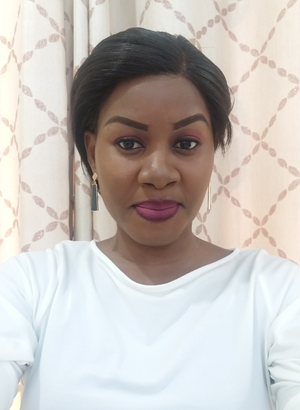
Olayinka Fagbemiro (Astronomers Without Borders (AWB) Nigeria)
For more information about this talk click here
-
The Education System in our Country and its Condition
Wednesday Oct. 7, 2020
UTC: 5:55 p.m. - 6:55 p.m.Thursday Oct. 8, 2020
UTC: 10:55 a.m. - 11:55 a.m.The educational system in our country and its condition. There is no steady internet connection, no computer infrastructure and using manual Telescopes....etc, So how do we face these challenges and teach the space sciences to others. What the major subjects that we focus on in astronomy, and how to engage with people to teach them and share knowledge. The challenges and opportunities .. how we use all materials that we have to do the best without professional tools. People With special needs, students, blindness, deafness ....etc with simple ideas you can make them see and touch the universe.
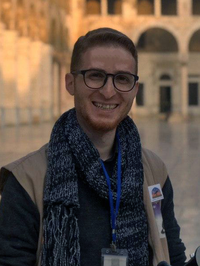
Nasser Alkadi (Syrian Astronomical Association)
For more information about this talk click here
-
Astronomy Education in a Low-Tech Environment
Wednesday Oct. 7, 2020
UTC: 6:05 p.m. - 6:15 p.m.Thursday Oct. 8, 2020
UTC: 11:05 a.m. - 11:15 a.m.For years Indonesia has made the first 9 year of education compulsory. Yet the quality of it varies, with the lowest being at the least developed regions. For astronomy this is an interesting case: the least developed regions often have the clearest darkest night where one can see beautiful sky. We try to combine the introduction to astronomy with environmental protection in our educational material for school children. The main idea is to improve their learning experience without relying much on technology and use their natural resources instead which often inspire creativity. Our strategy involves empowering their teachers and local facilitators (local university students and STEAM-related industries). Our Bosscha Observatory develops the educational material as well as provides trainings for the teachers and local facilitators.
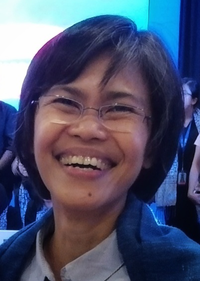
Premana W. Premadi (Bosscha Observatory)
For more information about this talk click here
-
The Nairobi Planetarium: A model for a sustainable, low cost, natural dome
Wednesday Oct. 7, 2020
UTC: 6:15 p.m. - 6:25 p.m.Thursday Oct. 8, 2020
UTC: 11:15 a.m. - 11:25 a.m.Traditionally a planetarium is an expensive building to construct, with very specific skills only known by a small number of specialised professionals. Our approach is different in that we have built a dome using bamboo harvested from our compound, and wit h a few tips found online such as treating the bamboo against insects and mould we hope to have found a way of building a planetarium which can last for many years - and is even moveable. We are currently working on making our dome “covid safe”, by essentially opening up the sides so it will be an outdoor / indoor space. After a number of potential designs we’ve now settled on one we feel can work. My presentation will focus on this bamboo dome and our plans to keep it safe during the pandemic
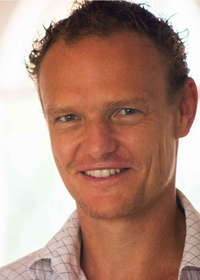
Daniel Chu Owen (Travelling Telescope)
For more information about this talk click here
-
Discussion Panel: Astronomy Education in Low-Tech Environments: Challenges and Solutions
Wednesday Oct. 7, 2020UTC: 6:25 p.m. - 6:55 p.m.
Thursday Oct. 8, 2020
UTC: 11:25 a.m. - 11:55 a.m.Chair:
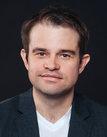
Niall Deacon
Panel: Nasser Alkadi
(Syrian Astronomical Association), Olayinka Fagbemiro
(Astronomers Without Borders (AWB) Nigeria), Daniel Chu Owen
(Travelling Telescope), Premana W. Premadi
(Bosscha Observatory)
Posters
-
AMT/NOVA mobile planetarium project in Namibia
Joanna Holt (Netherlands Research School for Astronomy (NOVA))
The Netherlands Research School for Astronomy (NOVA) runs a network of mobile inflatable planetariums which have been visiting schools in The Netherlands for the last 10 years reaching more than 300,000 school children. In 2019, NOVA joined forces with astronomers from the Radboud University in Nijmegen (Netherlands), the Africa Millimetre Telescope (AMT), the University of Namibia (UNAM) and the Rӧssing Foundation and spent a week on the road with one of the NOVA-domes, visiting schools in remote areas in northern and eastern Namibia. After this successful pilot visit, a new educational project was born. Once the corona-crisis is over, a dedicated inflatable mobile planetarium will travel around Namibia and aims to visit every school in the country within the next 5 years.
-
Astronomy Education in low-tech environments: Tunisia
AbdelHafidh Teyahi (Astro)
As Tunisian astronomical Society, we organize and support activities to enhance public knowledge and education of astronomy. Various activities are taking place in Tunisia, these activities vary to fit target audience in simple practical workshops to better understand their world. With abundant materials such as piece of wood or plastic, some school supplies (such as a compass, pencil, pen, ordinary lamp, terrestrial globe, etc.), a treated tennis ball, a planetarium and a telescope, we could practice our passion with young people and volunteers from different ages Here are some practical workshops designed for young people: - making artisanal Spectroscopes in hands-on workshops for children: Using cardboard tubes and cd Rom, we build spectroscopes to observe the solar spectrum - Altosol workshops: to determine the height of the Sun, we measure shadow lengths of a triangular wooden piece - Moon phases, Lunar and solar eclipse observation - Planetarium sessions to introduce fundamentals in astronomy and to present the elements of the universe. - Exhibitions: Participation in national and international astronomical and educational events. - Solar and stellar observation with a telescope equipped with an H-alpha filter and a C8 or C9 - Making different types of Sundials (with wood in schoolyards)- - Using The wooden model of Astrolabe, participants figure out where they are after identifying and locating the stars and the sun
-
Astronomy in low tech environments: Ethiopia
Nebiyu Suleyman Mohammed (Ethiopian Space Science and Technology Institute)
In many parts of the world, there are no advanced astronomical instruments or tools available to the public mainly because of budget shortage. As a result, people get discouraged and have limitations to make space activities and thus stick to only the theoretical approaches. However, there are many effective low-tech solutions that can be done with simple and cheap materials. Hands-on activities are very important to help students and teachers to understand the significance of Astronomical observations and phenomena. It creates a link between physical principles with everyday observations that leads to many of the more abstract and remote ideas to become more familiar. These activities will teach the students to focus on the experience and skills developed by using critical thinking. They are designed to be worked individually or in a group. These may include activities such as stargazing using free software or mobile apps, laboratory experiments, developing of tools & instruments and watching documentary videos. In most cases, Mathematics plays an important role in modeling these activities, and finally, the analysis is needed to arrive at the conclusions. Specifically, with these methods, there are some suggested traditional activities designed for collaborative learning in class or outreach programs such as constellation studies, lunar phases, modeling scales of distances, and sizes of celestial objects and planetary orbits.
-
Astronomy in low tech environments: Madagascar
Ando Ratsimbazafy (Prince George's Community College)
"Madagascar is well known for a special tourist destination and its unique fauna and flora. Astronomy is starting to gain interest in schools, universities, and the public. This is not because Madagascar just recently updated its internet to the fast broadband, optical fiber, in the result of the East African Submarine Cable System (EASSy). The interest in the astronomy field raises because of the incorporation of the subject at the universities and schools, and the existence of the various outreach groups. Despite what appears to be a technological advantage, Madagascar’s high-speed internet hardly erves its population. Only 13% of its 25 million inhabitants have access to electricity and only 2.1% of the population has access to the internet. In this talk, I will discuss the challenges the teachers and students are facing when it comes to astronomy."
-
Hands-on astronomy activities using simple and affordable local materials
Sarah Abotsi-Masters (Ghana Planetarium)
The poster will showcase some of the hands-on activities we use to demonstrate astronomy concepts, for students in after school astronomy clubs, and teachers during teacher training sessions.
-
Low-tech Astro activities in Croatian schools
Danijela Takač (Elementary School Pantovcak), Ana Marija Kukuruzovic
We meant to make a poster about different activities in Kindergarden, Elementary and high school that are non technological. The poster will have a general introduction, than activities, than conclusion and results.
-
Low/tech didactics of Astronomy in Argentina
Camino Néstor (Complejo Plaza del Cielo - CONICET-FHCS UNPSJB)
I will show many didactical resources and actual experiences related to naked eye astronomy, developed with children, teachers and elder people. Horizontal reference system, phases, seasons, day and night, movement of night sky, measurements of orbital parameters and of objects of Earth-Moon-Sun system will be presented, as well as methodologies and instruments utilized, all of them hand made by the participants of the activities.
-
Technology in School Classroom: is it scalable?
Aniket Sule (Homi Bhabha Centre for Science Education (HBCSE-TIFR))
"In the last two decades a lot of case studies have been presented across all sciences where technology interventions in school classrooms have a net positive gain in learning. Typically these studies measure success of technology interventions through improvement in subject competency (pre-test-post-test or control-experiment) or increased student engagement, better visualisation or feedback from teachers. However, these case studies rarely touch the larger questions which need to be answered about viability and scalability before technology in the school classroom is advocated as the future of learning. These include availability of stable electric supply, internet, computer hardware etc. The situation is unlikely to change drastically in a timescale of 5-10 years. Thus, a focus on learning in a low-tech environment is essential. If the intervention is planned with care, almost all goals of technology based interventions can be achieved without invoking the technology. One needs to realise that the purpose of technology intervention in the classroom is not to jazz up the learning process, but good interventions start with core educational objectives. If one is able to analyse objectives behind such an intervention, it is possible to design low-tech interventions with exactly the same learning gains. This last point will be illustrated through an example. "
-
The School on Wheels Project
Elisabeta Ana Naghi (Education Ministry)
Main objective The sky seen through astronomical instruments (telescope) Target group - students from rural areas, who do not have internet access in Suceava County Activities During a week (annually in August) four volunteer professors of the Cygnus Scientific Society, with their own cars, with 4 telescopes, crossing 6 distant Romanian villages, .80 children. a. the optical instruments, their utility were presented b. astronomical observations were made identifying palnets, constellations, other celestial objects Results -development key math and science skills - development of teamwork and communication




